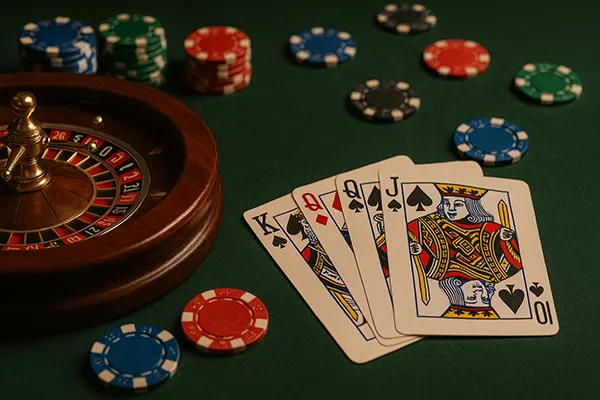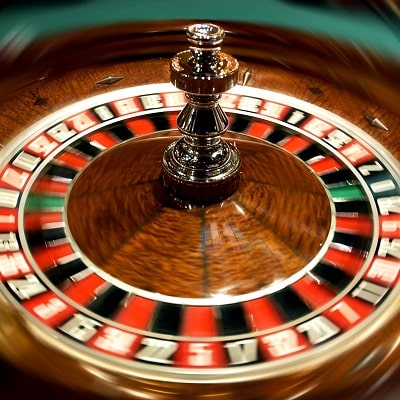Gambling and Cultural Differences: Roulette, Poker and Slots Around the World

Games of chance have travelled across continents and adapted to local traditions, creating a diverse picture of how people approach roulette, poker and slot machines. The cultural background of each region shapes not only the rules and styles of play but also the level of acceptance and the perception of risk. In 2025, the gambling industry is more international than ever, yet cultural preferences continue to define the popularity of certain games in different parts of the globe.
European Traditions in Casino Games
Europe is the birthplace of some of the most iconic games, including roulette and baccarat. In countries such as France and Monaco, roulette remains deeply tied to heritage and prestige. French roulette with its additional rules like “La Partage” is still played widely, giving players slightly better odds compared to other variations.
Poker has gained strong traction in countries like the United Kingdom, Germany and Spain, where professional tournaments attract global audiences. The World Series of Poker Europe, hosted in various European cities, reflects this passion for strategy-driven play. European poker players are known for their analytical approach and structured betting styles, influenced by centuries of card-playing traditions.
Slots in Europe are popular both in physical venues and online. In countries such as Sweden and Denmark, regulations have emphasised responsible gambling, leading to slot designs that incorporate time limits and mandatory reality checks. This balance between entertainment and safety reflects Europe’s cautious yet enthusiastic embrace of gambling.
How European Culture Shapes Risk
European players often view gambling as a form of refined entertainment rather than a pursuit of fortune. The emphasis is placed on skill-based games such as poker or roulette strategies, where decisions can influence outcomes. The cultural association with leisure and social interaction makes gambling an accepted, yet regulated, part of society.
Countries such as Italy and Spain integrate gambling into festivals and community gatherings, where bingo and lottery-type games remain popular. This social angle demonstrates how gambling in Europe is often connected to tradition and shared experience rather than individual pursuit of wealth.
European regulatory frameworks also reflect cultural values, with strict measures on advertising, age restrictions and fairness testing. These practices show how cultural caution towards risk translates into consumer protection.
Asian Perspectives on Casino Games
Asia has one of the most dynamic gambling landscapes, blending traditional games with modern casino favourites. Macau is globally recognised as the capital of baccarat, where the game dominates tables far more than poker or roulette. In contrast, countries like the Philippines and South Korea have embraced a wider variety of casino entertainment, appealing to both locals and tourists.
Slot machines are gradually gaining traction in Asia, though cultural attitudes towards chance-based games vary. In Japan, pachinko remains a unique hybrid of slots and pinball, deeply ingrained in the culture as both entertainment and a social pastime. Its continued popularity illustrates the region’s preference for locally adapted formats rather than direct imports.
Poker in Asia has grown significantly through international tournaments in Macau and Manila. However, the cultural approach is often more cautious compared to Europe, with players valuing patience and risk management. This is consistent with broader cultural values across East Asia, where discipline and restraint influence decision-making.
Local Variations in Asian Gambling
Baccarat in Macau and Singapore showcases how cultural traditions influence game preference. The simplicity of baccarat appeals to collectivist cultures, where shared rituals and table play are as important as winning. Unlike poker, which emphasises individual skill, baccarat reinforces group participation.
India demonstrates another cultural variation, where rummy is more widely played than roulette or poker. Rooted in family gatherings and festivals, rummy has evolved into regulated online formats, bridging traditional card culture with modern gambling practices.
In countries where gambling is restricted, underground adaptations of casino games also highlight cultural resilience. Mahjong, for example, continues to be played for stakes in regions of China despite strict regulation, blending tradition with discreet risk-taking.

Latin American Gambling Preferences
Latin America presents a vibrant mix of gambling practices shaped by colonial history and local traditions. Roulette is popular in countries such as Argentina and Uruguay, where European influences introduced the game centuries ago. Today, it remains a key feature in both land-based and online casinos.
Poker has gained momentum in Brazil and Mexico, where international tournaments have fostered communities of competitive players. The growth of mobile technology has expanded access, making poker a game that blends social connection with strategic play. Brazilian players in particular have earned global recognition for their bold and aggressive styles.
Slots are widespread across Latin America, especially in countries like Chile and Colombia. Many players are drawn to progressive jackpots, reflecting a cultural fascination with high rewards despite higher risks. Local regulations vary, but slot parlours are common entertainment venues for large segments of the population.
Cultural Influence on Risk in Latin America
Latin American gambling culture tends to embrace risk more openly compared to Europe or Asia. This is reflected in betting behaviours, with players more likely to engage in high-stakes games or seek rapid wins. The cultural backdrop of passion and spontaneity influences how gambling is perceived as both entertainment and opportunity.
In many communities, gambling is tied to social gatherings, with lotteries and raffles forming part of festivals and charity events. This connection to communal experiences reinforces gambling’s role beyond financial gain, integrating it into everyday culture.
Despite regulatory challenges, gambling continues to grow across Latin America. Governments are increasingly recognising its economic contribution while introducing frameworks for safer play, ensuring that the cultural enthusiasm for risk is balanced with protection.



